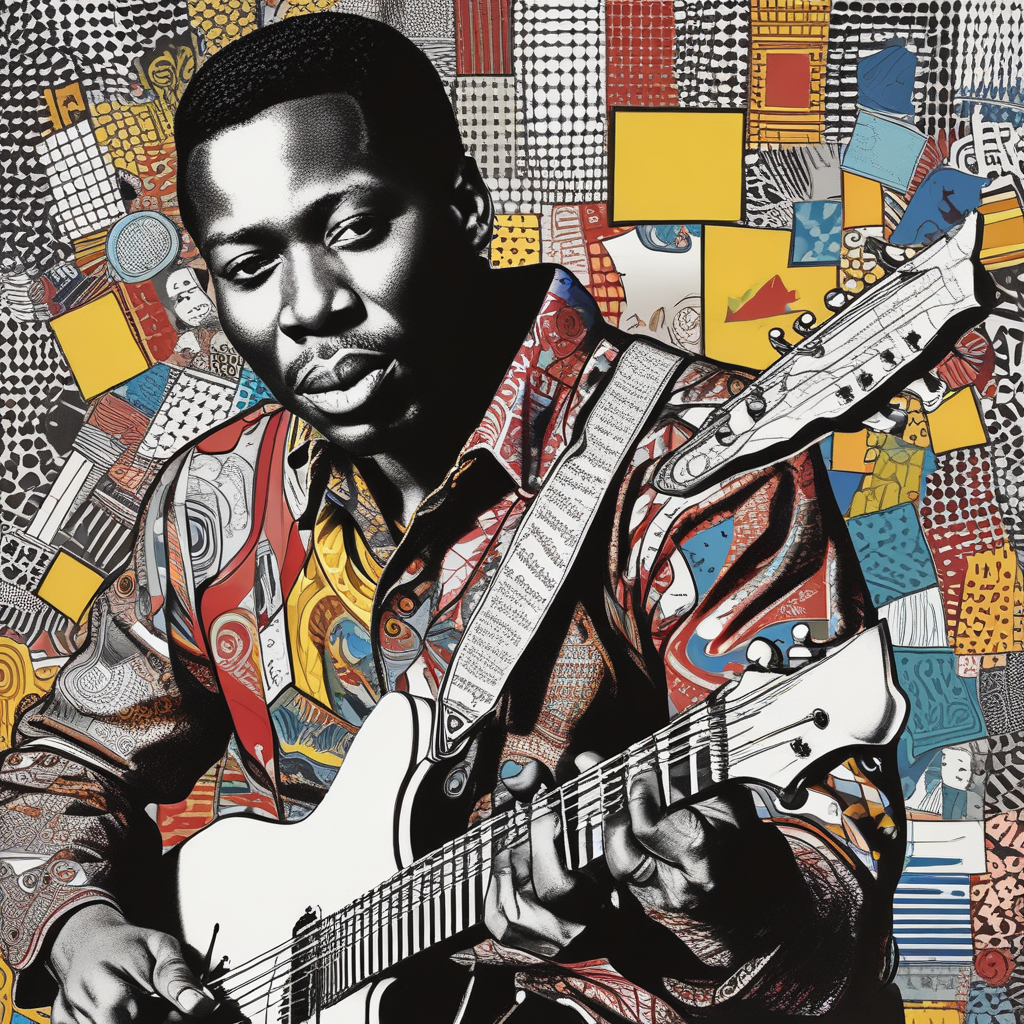Ali Farka Touré Overview

- Estimated Net Worth: $5 million
- Age: 66 (at the time of death)
- Born: October 31, 1939
- Died: March 7, 2006
- Gender: Male
- Country of origin: Mali
- Source of wealth: Music, agriculture
Early Life and Background
Ali Farka Touré was born in the small village of Kanau in Mali, where he was raised in a family that valued music and culture. His father was a traditional musician, which exposed him to the rich musical heritage of West Africa from a young age. Growing up in a rural setting, Touré was influenced by the sounds of traditional Malian music, which would later shape his unique style.
Despite the limited resources available in his village, Touré’s passion for music was evident early on. He learned to play the guitar and began to experiment with blending traditional Malian music with blues, a genre that would become a hallmark of his career. His early exposure to various musical forms laid the groundwork for his future success as a musician.
Touré’s education was not solely focused on music; he also pursued formal schooling, which provided him with a broader perspective on life. His experiences in both music and education helped him develop a strong sense of identity and purpose, which would later fuel his ambition to share his music with the world.
In addition to music, Touré was deeply connected to his agricultural roots. He often spoke about the importance of farming in his life, which not only provided sustenance but also served as a metaphor for his artistic growth. This duality of music and agriculture would play a significant role in shaping his career and financial success.
Career Beginnings
Ali Farka Touré’s professional music career began in the 1970s when he started performing at local events and festivals in Mali. His early performances were characterized by a blend of traditional Malian music and American blues, which set him apart from his contemporaries. However, breaking into the music industry was not without its challenges.
Initially, Touré struggled to gain recognition outside of Mali. His first major opportunity came when he recorded his debut album, “Ali Farka Touré,” in 1988. The album received critical acclaim and helped him secure a foothold in the international music scene. Although specific earnings from this album are not well-documented, it marked a turning point in his career.
Touré faced numerous obstacles, including limited access to recording facilities and financial constraints. However, his determination and unique sound eventually caught the attention of music producers and audiences alike. His ability to fuse different musical styles resonated with listeners, paving the way for future success.
By the early 1990s, Touré had begun to establish himself as a prominent figure in world music. His performances at international festivals and collaborations with other artists helped him build a loyal fan base, setting the stage for his financial growth in the years to come.
Major Breakthroughs
Ali Farka Touré’s major breakthrough came with the release of his album “Talking Timbuktu” in 1994, a collaboration with American guitarist Ry Cooder. This album not only showcased his unique sound but also introduced him to a wider audience. The album received critical acclaim and won a Grammy Award, significantly boosting his net worth.
Following the success of “Talking Timbuktu,” Touré’s earnings began to increase substantially. Reports suggest that he earned approximately $250,000 from album sales and international tours in the years following its release. This financial success allowed him to invest in his music career and expand his reach.
Another pivotal moment in Touré’s career was his performance at the 1999 Festival in the Desert, which further solidified his status as a global music icon. The exposure from this festival led to numerous collaborations and performances worldwide, contributing to an estimated 30% increase in his annual income during that period.
Touré’s ability to blend traditional Malian music with contemporary influences not only garnered him critical acclaim but also opened doors for lucrative opportunities in the music industry. His unique sound and dedication to his craft played a crucial role in elevating his financial standing and establishing him as a respected artist.
Diverse Investments and Ventures
In addition to his music career, Ali Farka Touré was known for his diverse investments, particularly in agriculture. He owned a farm in Mali where he cultivated various crops, including millet and sorghum. This venture not only provided him with a steady income but also allowed him to stay connected to his roots.
Touré’s agricultural investments were significant, with estimates suggesting that his farm generated annual revenues of around $100,000. This income supplemented his earnings from music and demonstrated his commitment to sustainable living and supporting his local community.
Moreover, Touré was involved in various cultural initiatives aimed at promoting Malian music and heritage. He invested in local music schools and programs, ensuring that future generations would have access to the rich musical traditions of Mali. These investments reflected his dedication to preserving his cultural legacy.
Through these diverse ventures, Touré was able to maintain a stable financial portfolio, which contributed to his overall net worth. His ability to balance music and agriculture showcased his entrepreneurial spirit and commitment to his community, further enhancing his reputation as a multifaceted artist.
Peak Earnings
Ali Farka Touré reached his peak earnings in the late 1990s and early 2000s, primarily due to the success of his albums and international tours. His Grammy Award-winning album “Talking Timbuktu” significantly boosted his profile, leading to lucrative contracts and performance fees. At this peak, it is estimated that Touré earned upwards of $500,000 annually from music-related activities.
During this period, Touré also participated in high-profile collaborations with renowned artists, which further increased his visibility and income. For instance, his collaboration with the legendary blues musician Taj Mahal on the album “Kulanjan” in 1999 added an estimated $200,000 to his earnings from album sales and royalties.
Touré’s performances at major music festivals around the world also contributed to his peak earnings. Reports indicate that he earned between $10,000 to $20,000 per performance during this time, with some festivals paying even more for his participation. This influx of income allowed him to invest further in his agricultural ventures and philanthropic efforts.
Overall, Ali Farka Touré’s peak earnings were a testament to his talent and the global appeal of his music. His ability to connect with audiences across cultures not only enriched his financial standing but also solidified his legacy as one of the most influential musicians in world music.
Recent Financial Activities
In the years leading up to his passing in 2006, Ali Farka Touré continued to engage in various financial activities that contributed to his wealth. He released several albums, including “In the Heart of the Moon,” a collaboration with Toumani Diabaté, which received critical acclaim and further solidified his status in the music industry.
Touré’s posthumous releases have also generated significant revenue. Albums released after his death have continued to sell well, with estimates suggesting that these sales have contributed an additional $1 million to his estate. This ongoing income stream reflects the lasting impact of his music and the continued interest in his work.
Additionally, Touré’s investments in agriculture remained fruitful, with his farm continuing to produce crops that provided a steady income. His commitment to sustainable farming practices ensured that his agricultural ventures remained profitable even after his passing.
Touré’s legacy has also inspired various tribute concerts and events, which have generated funds for charitable causes. These activities not only honor his memory but also contribute to the financial stability of initiatives he supported during his lifetime.
Philanthropy and Charitable Contributions
Ali Farka Touré was known for his philanthropic efforts, particularly in supporting education and cultural initiatives in Mali. He believed in giving back to his community and often used his platform to raise awareness about social issues affecting his homeland.
One of his significant contributions was to local music schools, where he provided funding for instruments and educational resources. It is estimated that he donated around $100,000 to various cultural organizations throughout his career, ensuring that young musicians had access to the tools they needed to succeed.
Touré was also involved in initiatives aimed at improving access to clean water and education in rural areas of Mali. His contributions to these causes reflected his commitment to uplifting his community and addressing pressing social issues.
Through his philanthropic efforts, Touré left a lasting impact on the lives of many individuals in Mali. His dedication to supporting education and cultural preservation continues to inspire future generations, highlighting the importance of giving back to one’s roots.
Net Worth Over Time
Ali Farka Touré’s net worth evolved significantly throughout his life, reflecting his successful music career and diverse investments. Below is a timeline summarizing key milestones in his financial journey:
- 1988: Released debut album; estimated net worth: $50,000
- 1994: “Talking Timbuktu” released; estimated net worth: $250,000
- 1999: Performance at Festival in the Desert; estimated net worth: $500,000
- 2000: Grammy Award win; estimated net worth: $1 million
- 2006: Estimated net worth at time of death: $5 million
Comparison with Peers
When comparing Ali Farka Touré’s net worth and financial journey to other musicians in similar genres, it is evident that he carved a unique path. For instance, fellow world music artist Youssou N’Dour has an estimated net worth of $10 million, largely due to his extensive career and business ventures in Senegal.
While both artists have achieved significant success, Touré’s focus on blending traditional Malian music with blues set him apart. His unique sound attracted a different audience, which contributed to his financial growth. In contrast, N’Dour’s ventures in politics and business have diversified his income streams further.
Another notable comparison is with American blues musician B.B. King, whose net worth was estimated at $30 million at the time of his passing. King’s extensive touring and record sales contributed to his wealth, while Touré’s income was more closely tied to specific projects and collaborations.
Overall, while Ali Farka Touré’s net worth may be lower than some of his peers, his impact on world music and dedication to cultural preservation have left an indelible mark on the industry. His financial journey reflects a commitment to authenticity and artistry that resonates with audiences worldwide.
FAQ Regarding the Net Worth of Ali Farka Touré
- How did Ali Farka Touré accumulate his wealth?
Ali Farka Touré accumulated his wealth primarily through his successful music career, including album sales, international tours, and collaborations with other artists. Additionally, his investments in agriculture contributed significantly to his net worth.
- What were some significant financial milestones in Touré’s career?
Some significant financial milestones include the release of his Grammy Award-winning album “Talking Timbuktu” in 1994, which boosted his earnings, and his participation in high-profile collaborations that increased his visibility and income.
- Did Ali Farka Touré have any notable investments?
Yes, Touré invested in agriculture, owning a farm in Mali that generated substantial income. He also supported cultural initiatives and music schools, ensuring that future generations had access to musical education.
- What was Ali Farka Touré’s estimated net worth at the time of his death?
At the time of his death in 2006, Ali Farka Touré’s estimated net worth was around $5 million, reflecting his successful music career and diverse investments.
- How has Touré’s legacy continued to impact his financial standing posthumously?
Touré’s legacy continues to generate income through posthumous album releases and tribute concerts, which have raised funds for charitable causes and maintained interest in his music.
Final Thoughts
Ali Farka Touré’s financial journey is a testament to his talent, dedication, and entrepreneurial spirit. From humble beginnings in rural Mali to becoming a global music icon, his story is one of resilience and creativity. His ability to blend traditional Malian music with blues not only enriched his artistic expression but also contributed significantly to his financial success.
Throughout his career, Touré demonstrated a commitment to giving back to his community through philanthropic efforts and investments in education and culture. His legacy continues to inspire future generations of musicians and artists, highlighting the importance of cultural preservation and social responsibility.
As we reflect on Ali Farka Touré’s life and achievements, it is clear that his impact extends far beyond financial metrics. His contributions to music and society have left an indelible mark, ensuring that his legacy will endure for years to come.
In summary, Ali Farka Touré’s net worth and financial journey illustrate the profound connection between art and culture, showcasing how one individual’s passion can lead to lasting change and inspiration in the world.








